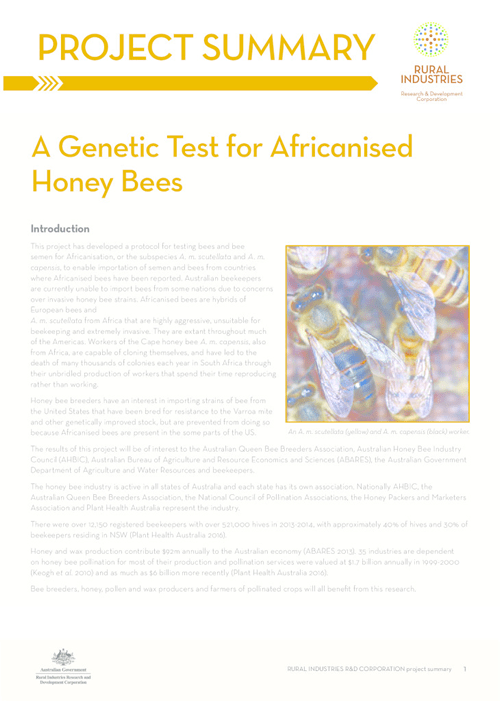Beekeepers wish to import bees/bee semen that have been bred for resistance to the Varroa mite (Varroa destructor). Australia currently does not have the Varroa mite, but it is likely that it will get it in the future. The Varroa mite weakens and kills bee colonies, and can decimate populations. Australian bees have little resistance to the Varroa mite, therefore the beekeeping industry and agricultural industries that rely on them for pollination would be severely impacted.
Importing Varroa-resistant stock will likely help to mitigate these effects. However this is currently not possible because Africanised bees are present in the South and South-western states of the US. Africanised bees out-compete strains of bees that have been bred for beekeeping and are themselves not amenable to beekeeping. This project created a genetic test to differentiate Africanised bees from non-Africanised bees to enable importation from countries that have desirable stock, but also have Africanised bees.
The creation of the test for Africanised bees opens the opportunity for industry to import honey bee queens and semen from countries that have Africanised bees. Honey bees are not native to Australia, but much of our agriculture is reliant upon them.
Bee breeders, honey, pollen and wax producers and farmers of pollinated crops will all benefit from this research.





